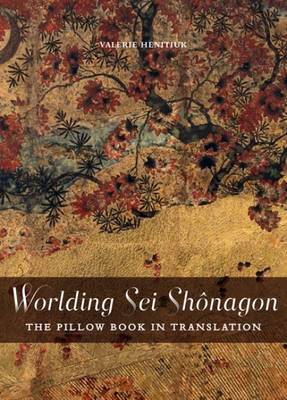
- Afhalen na 1 uur in een winkel met voorraad
- Gratis thuislevering in België vanaf € 30
- Ruim aanbod met 7 miljoen producten
- Afhalen na 1 uur in een winkel met voorraad
- Gratis thuislevering in België vanaf € 30
- Ruim aanbod met 7 miljoen producten
Omschrijving
The Makura no Sôshi, or The Pillow Book as it is generally known in English, is a collection of personal reflections and anecdotes about life in the Japanese royal court composed around the turn of the eleventh century by a woman known as Sei Shônagon. Its opening section, which begins haru wa akebono, or "spring, dawn," is arguably the single most famous passage in Japanese literature. Throughout its long life, The Pillow Book has been translated countless times. It has captured the European imagination with its lyrical style, compelling images and the striking personal voice of its author. Worlding Sei Shônagon guides the reader through the remarkable translation history of The Pillow Book in the West, gathering almost fifty translations of the "spring, dawn" passage, which span one-hundred-and-thirty-five years and sixteen languages.
Many of the translations are made readily available for the first time in this study. The versions collected in Worlding Sei Shônagon are an enlightening example of the many ways in which translations can differ from their source text, undermining the idea of translation as the straightforward transfer of meaning from one language to another, one culture to another. Published in English.Specificaties
Betrokkenen
- Auteur(s):
- Uitgeverij:
Inhoud
- Aantal bladzijden:
- 330
- Taal:
- Engels
- Reeks:
Eigenschappen
- Productcode (EAN):
- 9780776607283
- Verschijningsdatum:
- 16/06/2012
- Uitvoering:
- Paperback
- Formaat:
- Trade paperback (VS)
- Afmetingen:
- 145 mm x 208 mm
- Gewicht:
- 453 g

Alleen bij Standaard Boekhandel
Beoordelingen
We publiceren alleen reviews die voldoen aan de voorwaarden voor reviews. Bekijk onze voorwaarden voor reviews.









